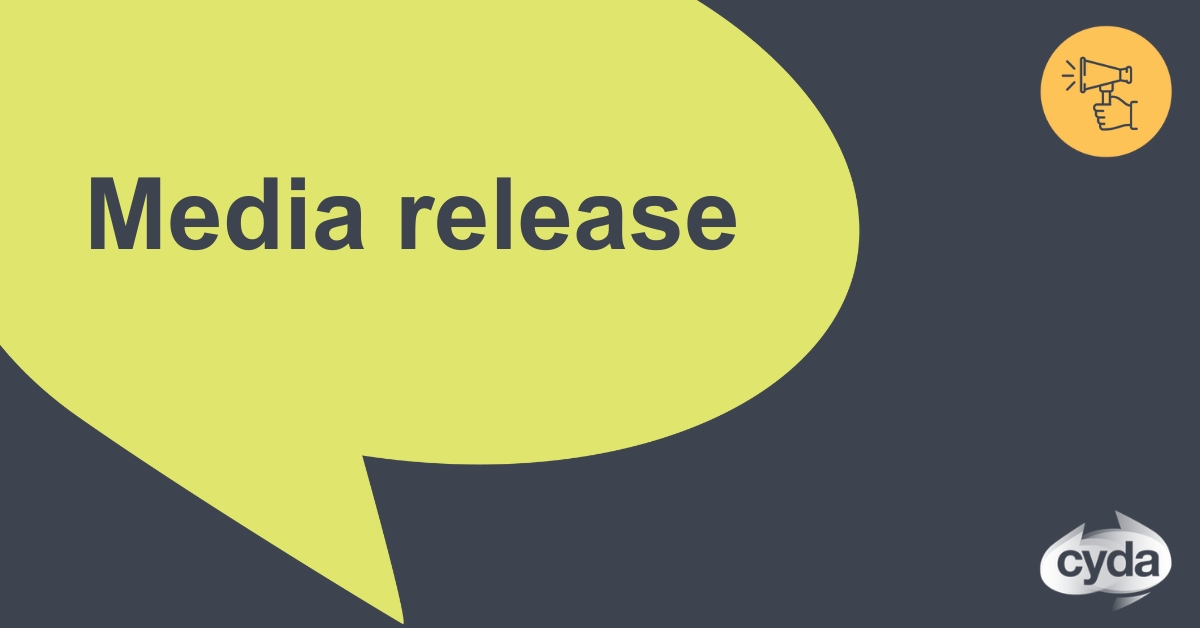Treasurer Jim Chalmers described Tuesday’s Federal Budget as putting the cost of living “front and centre”, yet children and young people with disability have been left out of much-needed relief.
As the Opposition prepares to deliver its Budget Reply later today, Children and Young People with Disability Australia (CYDA) reaffirms calls for all parties and candidates to invest in disabled youth this election.
“The Federal Budget did little to address the disproportionate cost-of-living strain and growing crisis of broken systems more than 500,000 children and young people with disability are up against,” said CYDA CEO Skye Kakoschke-Moore.
“Despite being pitched as a fairer and more inclusive cost-of-living plan, it offered no targeted relief for our community and only vague promises on education and disability supports funding.
“It is neither fair nor inclusive to leave children and young people with disability behind.”
Cost-of-living relief but not for disabled young people
Young people with disability experience higher living costs, are more likely to live in poverty, and struggle to afford essentials like healthcare, housing, and assistive technology due in part to inadequate income supports.
They face some of Australia’s highest unemployment rates and lowest wages, and are often stuck in insecure jobs if they can find work at all.
While promised tax cuts and energy bill relief are welcome, they do little to address the unique and excessive financial challenges young people with disability and their families confront every day.
“It is great to see increases to the maximum rate of Commonwealth Rent Assistance, but much more is needed to support disabled children and young people,” said Ms Kakoschke-Moore.
“The disability community has long called for JobSeeker and Youth Allowance rates to be raised, and for supplements to be introduced to Disability Support Pension and carer payments.”
Current levels of income support are woefully inadequate, with as many as two in five DSP recipients and three in five JobSeeker recipients living below the poverty line in 2020.
Who benefits from ‘Better and Fairer Schools’?
The Federal Budget included funding for ‘more individualised and intensive supports for students’, student debt relief, and 100,000 permanent Free TAFE places.
But with no clear commitment to accessibility or inclusion, including in the new Better and Fairer Schools Agreement 2025-2034, CYDA questions whether students with disability will benefit.
“Free TAFE sounds great – but what’s the point if courses and campuses aren’t inclusive or accessible to disabled young people, or if teaching staff aren’t equipped to apply universal design for learning?” asked CYDA Board Chair Ebe Ganon.
“We deserve clear commitments to accessibility and inclusion and a system that includes and supports us to succeed, not one that keeps us locked out of education and job pathways.”
Children and young people with disability are excluded from many education opportunities, with biennial CYDA surveys showing students with disability regularly experience segregation, exclusion and bullying, on top of higher dropout rates at university.
The Higher Education Disability Support Fund, announced late last year, is a step in the right direction.
Ganon said it is exciting to see the government recognise the work that still needs to be done to build universities’ capacity to support disabled students to thrive.
“We will be watching closely to ensure that spending of this money is transparent and that universities are held accountable,” they said.
Disability supports – dollars without details
CYDA cautiously welcomes this Budget’s commitment of $423.8m for disability supports, including $364.5m to reform the Information Linkages and Capacity Building (ILC) program, the first dollar figure attached to Foundational Supports.
However, it remains unclear whether this investment will be enough to provide long-term support for children and young people with disability who cannot access the NDIS, especially given a lack of clarity around state and territory funding.
“At this stage, children and young people with disability and their families have no idea what supports will be provided and by who,” said Ms Kakoschke-Moore.
“The commitment of $150 million of annual ILC funding from 2029 onwards is welcome, and we call on all parties to pledge they will honour this promise.
“Our community deserves clarity and certainty.”
CYDA is pleased to see a commitment of $17.1m to improve accessibility of community spaces across Australia.
Support for individual advocacy services lacking
The Budget also delivers $7.3m for NDIS appeals support.
While a positive addition, it fails to address the chronic underfunding of individual advocacy services that support young people and families to navigate complex systems, like the Scheme, before they are forced into crisis.
Addressing the serious shortage of individual advocacy services and targeted support for children and young people with intersectional experiences of disability must be a priority.
CYDA’s Calls to Action for the Federal Election
Investing in children and young people with disability is investing in Australia’s future.
With this year’s Federal election just weeks away, CYDA urges all political parties and candidates to deliver real action.
In its Election Platform, it calls for commitments to:
- Build a truly inclusive education system
- Ensure a fair, safe, and accessible disability supports ecosystem
- Address the cost-of-living crisis and unemployment impacts
- Invest in individual advocacy


